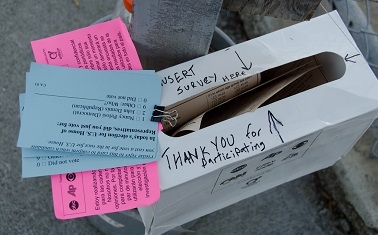Wait -- did nearly 60 percent of voters last week say that climate change is a serious problem?
We're talking about an election that booted some prominent climate champions from Congress and, in several cases, replaced them with folks who think fighting greenhouse gases is a waste of time.
So let's sort out what's really going on.
After an election, it's common for interest groups to spin the results as an endorsement of their cause. And, on the surface, it should be pretty easy to interpret the outcome: If candidates who basically support the same ideology win the most seats in Congress, it would seem like the American people are supporting their approach on issues.
But the reality is a bit more complicated than that.
2014 was generally a good year for conservatives running for Congress. But as voters were sending those candidates to Washington, they were taking decidedly non-conservative positions on state ballot initiatives.
Minimum wage increases won in six out of six states -- including in places like Arkansas, Alaska, Nebraska and South Dakota. Initiatives on gun control and marijuana legalization were approved in other states.
The same division appears to exist on environmental issues.
There's no doubt that in several high-profile Senate races the less pro-environment candidate won. And "less pro-environment" is putting it nicely - some were downright hostile to common-sense environmental rules.
At the same time, exit polling revealed that nearly six in 10 voters said climate change was a "serious problem."
How do we square voters' desire for climate action with their decision to send some people to Washington who deny it's even happening?
The answer is that, in 2014, other issues dominated the campaign -- and, for historical reasons, a party in its sixth year of control of the White House generally loses congressional seats. Anything voters don't like in the world gets pinned on that party and its candidates.
The important lesson from all of this is that leaders in Washington shouldn't start believing their own press releases. Go ahead and claim voters endorsed everything you stand for, but don't start acting like it's true. The American people did not suddenly decide they don't care about clean air, clean water, and a healthy climate.
In fact, a broad majority of voters, those who went to the polls in the last election and those who will turn out in 2016, strongly support ambitious government action to protect their health and their children's future.
If the new leaders in Congress recognize that, and pursue those goals by proposing new ideas based on their own philosophical approach, we are in for a productive and interesting debate over the next two years.
If they choose to ignore reality, or try to use the election as an excuse to block limits on pollution or other health protections, they'll need some really good spin for voters two years from now.
This post originally appeared on EDF Voices

